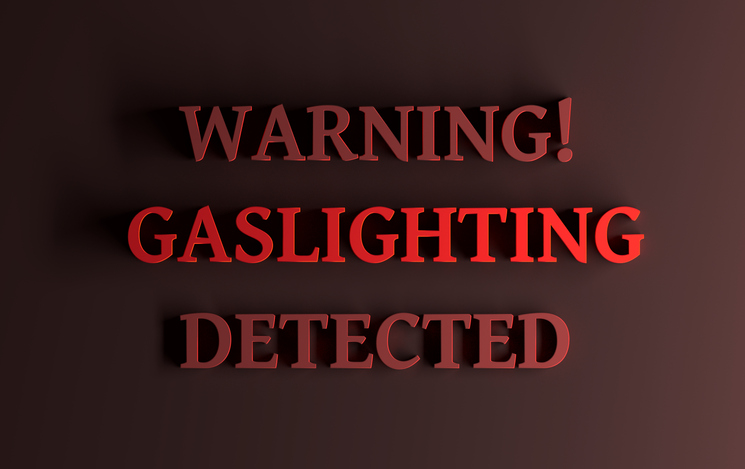Be Proactive About Medical Gaslighting

By Joy Stephenson-Laws, J.D., Founder
When you give birth to a child, it should be one of the happiest moments of your life. Sadly, for a 37-year-old woman in the United Kingdom named Lois Walker, this was not the case despite delivering a healthy baby boy.
Back in 2021, Walker had her third child via cesarean section but at the same time she also received a devastating diagnosis - stage 4 cancer.
According to one report, “When Ms Walker went into the hospital for her son to be born by Caesarean last year, surgeons found cancer in her ovaries, the lining of her abdomen and lymph nodes.”
“She said: ‘My abdomen was so diseased, tumours everywhere. They said that it was like a bag of sand that had been opened and it has gone everywhere.’”
During our interview with retired obstetrician and gynecologist Leonard Lawson, he said, “Never in my medical career, which spans more than 40 years, have I seen something like this happen during a cesarean birth.”
Perhaps even more devastating, it appears that Walker’s medical complaints were dismissed for way too long. Walker said that she visited doctors multiple times and even told them that she felt like she was going to die. She was told that she may have irritable bowel syndrome or just be a hypochondriac (someone with severe medical anxiety). She experienced this pain for a year.
“I don't know what else I could have done. It was like nobody wanted to listen,” she said.

“The essence of dehumanization is the denial of another person’s reality. To be told, in the absence of clinical evidence, that one’s pain is not real or that one’s biological symptoms are exaggerated or psychosomatic, is medical gaslighting,” reports Psychology Today.
“Medical gaslighting has been well-documented across a variety of clinical conditions. It is extremely commonplace for women, and even more prevalent for women of color, disabled women, LGBTQ individuals, older women, and women of lower socioeconomic status (Moyer, 2022).”
Take, for example, another story involving a young woman. Twenty-year-old law student Georgia Ford went to the doctor to address what she thought was heartburn. She shared with the doctors that she drinks alcohol pretty heavily.
“So Ford left with pills that help protect the stomach lining, but they didn't seem to work even when she took a break from booze, multiple news outlets reported,” according to this report.
After going back to the doctor, she was told her discomfort was due to muscle spasms. Her back pain eventually became so unbearable that she could practically not even lie down.
“She also experienced a severe cough that led to vomiting and weight loss, but clinicians remained unconcerned,” according to the report.
Ford claims that her doctors basically said “it was all in her head.” She eventually ended up in the emergency room coughing up blood and had cloudy patches on her lungs. Still she was told that it was “nothing life-threatening.”
“They were wrong. After booking an appointment with a private practitioner more than six months after her symptoms began, Ford learned she had papillary renal cell carcinoma type 2. The rare type of kidney cancer had spread to her lungs, liver, lymph nodes, and bones,” according to the report.
This is devastating. It should never take several months and several doctors to receive a proper cancer diagnosis unless there is some kind of odd medical mystery occurring. This certainly doesn’t appear to be the case with Georgia Ford’s story.
“These experiences with medical gaslighting have been happening for a long time – even centuries. A long time ago, women were told that their symptoms were a result of hysteria that had to do with problems with their uterus,” according to this source.
“One area where the problem of medical gaslighting is a huge issue is in the area of autoimmune diseases. So, we know that almost 80% of autoimmune disease sufferers are women, and there hasn't been nearly enough research into how to diagnose some of these diseases and how to recognize their symptoms.”
A young black woman named Kistein Monkhouse experienced medical gaslighting when she was suffering from awful pelvic pain. She found out that she had uterine fibroids, however, “She had visited over 7 different providers and failed to get the right answer for the cause of her excruciating pain. When she visited ED for the first time for her pain, she learned that she had a miscarriage, and in the follow-up visit, she further learned that she had experienced a chemical pregnancy,” according to one report discussing her story in detail.
Another young woman, a 33-year-old SoulCycle instructor named Emma Zaks, discovered she had an autoimmune condition that caused stomach pains and a mini stroke. It took her way too long, however, to receive a proper diagnosis and at first doctors at the hospital discharged her without a reason for her symptoms and simply gave her some steroids.
"Knowing what I know now, I wish I had pushed harder for more answers, but who was I to question these doctors? I hate confrontation and wanted to be a 'good patient' who was liked," she said, according to one report.
Listen to your body. Always Speak Up
You have to be an advocate for your own health. In no way am I saying that the women discussed and victims of medical gaslighting are at fault. It is not fair that people have to fight for a proper diagnosis or for their symptoms to be taken seriously, however, this is, unfortunately, a reality and flaw in the healthcare system. This isn’t to say that doctors are “the bad guys,” but we can’t always take what every doctor tells us as absolute facts.
I highly recommend checking out this article that discusses how to navigate medical gaslighting. It even includes key phrases you can use to get a doctor’s attention.
Finally, I write a lot about cancer prevention and how adopting healthy lifestyle habits, such as eating a nutrient-dense diet and exercising regularly, may assist with this. Maintaining nutritional balance in your body, as in not having too much or too little of any essential vitamin or mineral, is key in preventing inflammation and disease (and therefore cancer) and maintaining your overall health and wellness. Getting routine nutrient tests will may help identify issues early. If you do, a competent healthcare professional can work with you on possibly making adjustments to your lifestyle.
Enjoy your healthy life!
The pH professional health care team includes recognized experts from a variety of health care and related disciplines, including physicians, attorneys, nutritionists, nurses, and certified fitness instructors. This team also includes the members of the pH Medical Advisory Board, which constantly monitors all pH programs, products, and services. To learn more about the pH Medical Advisory Board, click here.







